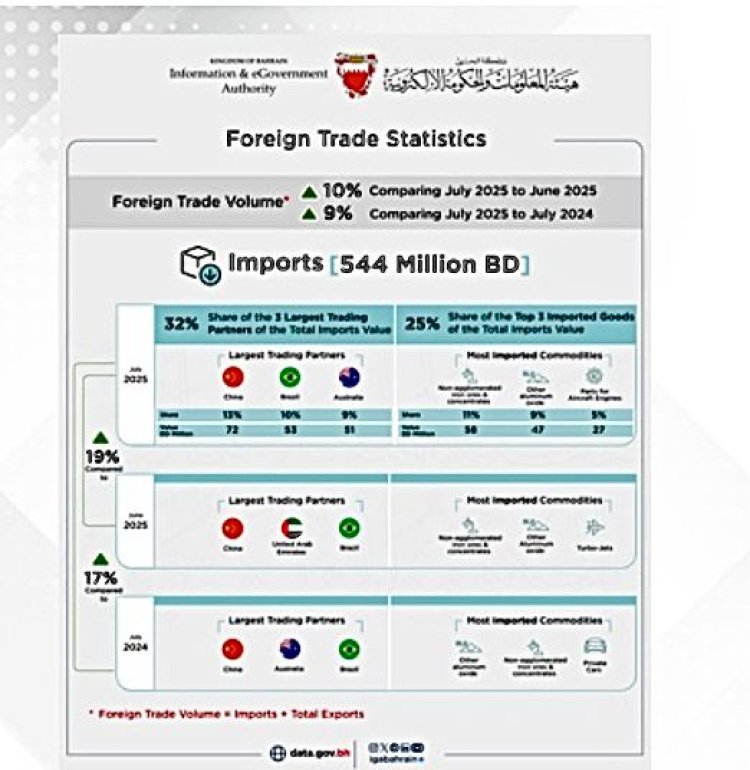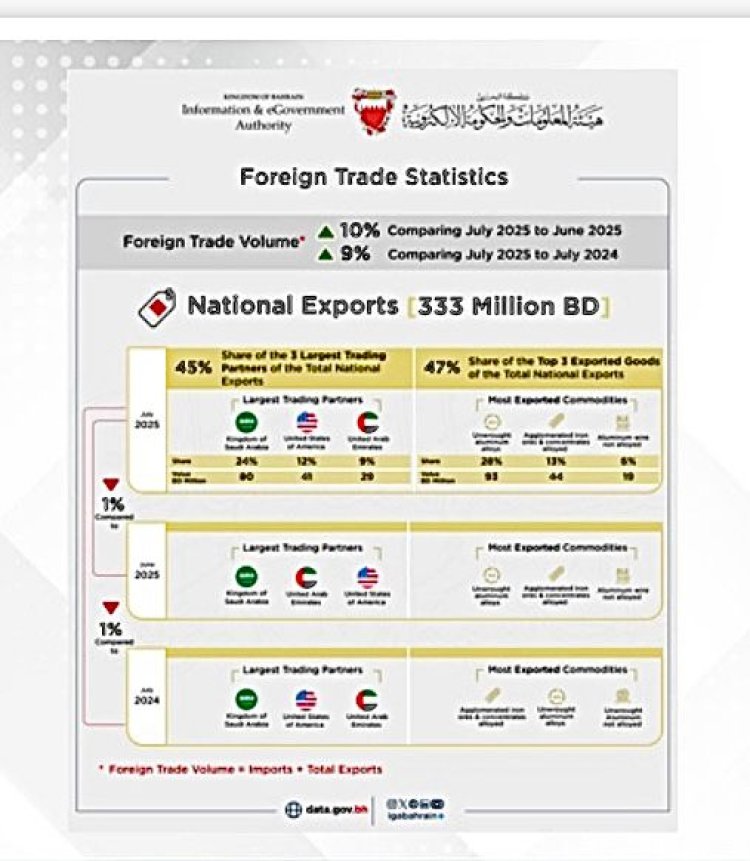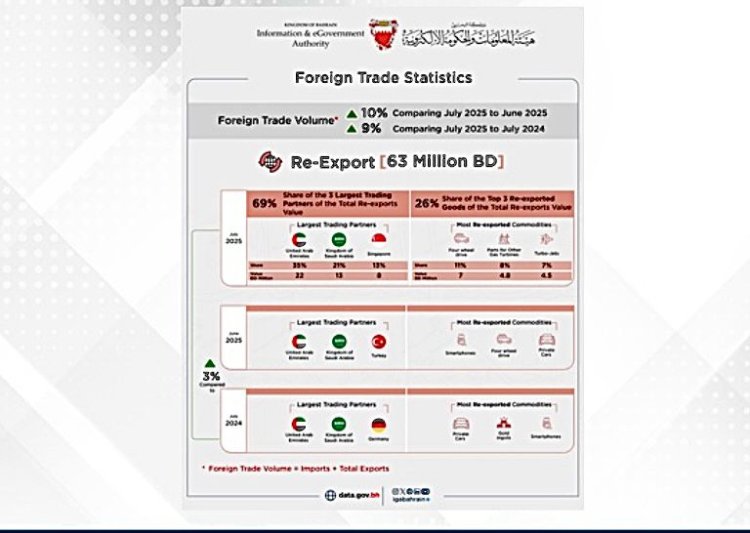Bahrain’s July 2025 Foreign Trade Report Shows Rise in Imports, Trade Deficit Widens
The Information & eGovernment Authority (iGA) has released its Foreign Trade Report for July 2025, detailing Bahrain’s trade balance, imports, exports of national origin, and re-exports. The report reveals a 17% year-on-year increase in non-oil imports, which rose from BD464 million in July 2024 to BD544 million this year. The top ten countries accounted for 69% of total imports, with China leading the list at BD72 million (13%), followed by Brazil (BD53 million, 10%) and Australia (BD51 million, 9%).
Among the most imported commodities, Non-Agglomerated Iron Ores and Concentrates led the way with BD58 million (11%), followed by Other Aluminum Oxide (BD47 million, 9%) and Parts for Aircraft Engines (BD27 million, 5%).
On the export front, non-oil exports of national origin experienced a 1% decrease, falling slightly from BD337 million in July 2024 to BD333 million in July 2025. Saudi Arabia remained Bahrain’s top export destination with BD80 million (24%), followed by the United States (BD41 million, 12%) and the United Arab Emirates (BD29 million, 9%). Leading Bahrain’s exports were Unwrought Aluminum Alloys, valued at BD93 million (28%), Agglomerated Iron Ores and Concentrates Alloyed (BD44 million, 13%), and Aluminum Wire not Alloyed (BD19 million, 6%).
Meanwhile, re-exports rose by 3%, totaling BD63 million, up from BD61 million a year earlier. The UAE topped the re-export list with BD22 million (35%), followed by Saudi Arabia (BD13 million, 21%) and Singapore (BD8 million, 13%). Among re-exported goods, Four-Wheel Drives led with BD7 million (11%), followed by Parts for Gas Turbines (BD4.8 million, 8%), and Turbo-Jets (BD4.5 million, 7%).
However, the overall trade balance recorded a deficit of BD148 million, significantly higher than the BD66 million deficit in July 2024. This widening gap reflects the stronger surge in imports compared to exports.


























